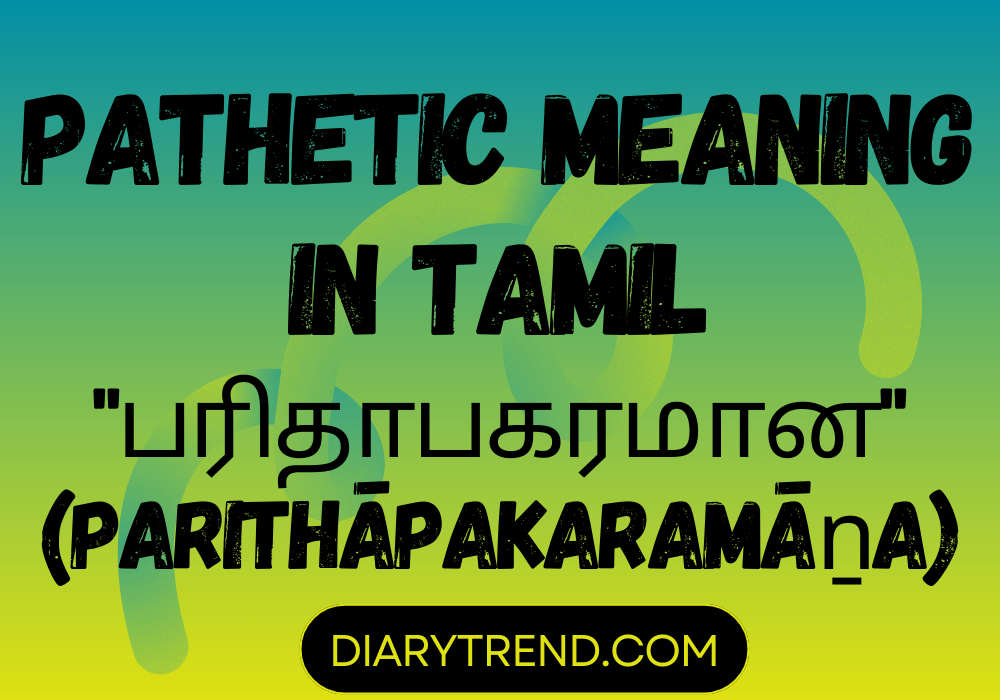The word “pathetic,” when translated into Tamil, becomes “பரிதாபகரமான” (parithāpakaramāṉa). This term holds a significant place in the rich tapestry of the Tamil language, reflecting not just a direct translation but also the cultural and emotional layers that are inherent in its usage.
The Linguistic Nuance
In English, “pathetic” often conveys a sense of pity, sorrow, or inadequacy. However, the Tamil counterpart, “பரிதாபகரமான,” encompasses a broader spectrum. It’s used to describe situations, actions, or individuals that evoke a deep sense of pity or sadness. This term captures the empathy and emotional depth that is characteristic of Tamil culture.
Cultural Context
Tamil, one of the oldest living languages, is known for its ability to convey complex emotions. The use of “பரிதாபகரமான” in literature, cinema, and everyday conversation often goes beyond mere pity. It can imply a situation that is lamentably tragic or an individual’s actions that are profoundly inadequate or sorrowful.
Usage in Literature and Cinema
Tamil literature and cinema frequently employ this term to portray characters or scenarios that are deeply touching or tragic. The emotion conveyed through “பரிதாபகரமான” is often used to build a connection with the audience, allowing them to experience the depth of the characters’ emotions.
Comparative Understanding
Comparing “pathetic” in English and “பரிதாபகரமான” in Tamil reveals interesting insights. While both carry a sense of sadness or pity, the Tamil usage is often less derogatory and more empathetic. It underscores a more profound emotional connection and understanding, reflective of the community-centric ethos of Tamil culture.
Conclusion
The word “பரிதாபகரமான” in Tamil is a beautiful example of how language transcends mere words to embody cultural and emotional depth. It’s a reminder of the rich, empathetic, and expressive nature of the Tamil language and culture, and how they interpret and express emotions in a nuanced manner.
